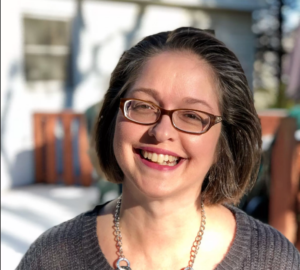After reading Russell Moore’s exceptional post on how best to be the Church this week as we gather for worship, here is how we at Mosaic will gather tomorrow:
1. We’ll open our service by joining hands to pray over the state of our country, to repent of our own blindness and denial, and to pray by name for those who have suffered loss. We won’t wait until the “pastoral prayer” in the order of worship. To do so seems somehow contrived. Instead, we’ll treat this the way you’d treat a first meeting with a loved one who has suffered loss. We’ll immediately embrace each other as families do, leaning on one another for comfort and hope.
2. We’ll pray by name for the families of all victims killed in the last week, as well as for the family of Micah Johnson (the shooter in Dallas). We’ll acknowledge the numbers — 136 African Americans killed so far in 2016 by officers of the law, and 26 policemen killed in the line of duty. We can no longer deny reality; these are not isolated incidents. The system is not healthy.
3. We will state the obvious. Racism is not dead. We will talk as if we are all in this together, because we are. Having talked with folks in my own church, I’ll speak not for myself but for them. They tell me people have had enough of having to explain to their children how to avoid violence at the hands of the police, even telling their boys they can’t play with toy guns because of what it might look like.
Mamas are tired of losing sleep every time their sons leave the house — sons who are suspect just because they show up, sons who in the wrong context become a threat because of the color of their skin. Just their color. These are sons doing no more than what any one of us has done … driving at night, hanging out, doing life like young adults do.
People have had enough of having to teach their children how to avoid the worst consequences of racial bias, and they’ve had enough of having to defend their need to do this among those who, because their lives are not affected, simply can’t relate or even believe.
People are tired of senseless killings. The guy in L.A. who said, “Can’t we all just get along?” spoke a prophetic word, profound in its difficulty.
We thought we could just get along, but evidently we can’t. Why?
Something deep within us is broken and the church must begin praying and acting as if there is a systemic evil that has lied to us and for which the only cure is Christ. It can’t be overstated: this isn’t a fight against flesh and blood but against a power or principality that is dark and persistent, that wants us to be okay with tolerable, so it can continue wreaking havoc in the margins, in the darkness, in the futility of our thinking.
It wants us to stop at tolerable , but tolerable isn’t enough. Racism — all forms of hatred, in fact — can’t be white-washed with southern politeness. The hatred and anger and bigotry just bleed through. We can’t claim to be followers of Jesus while privately agreeing with political rhetoric that breeds fear through division. Where we have been guilty, we must acknowledge this and repent of it. There is no spiritual loophole that allows us to be coarse and angry in political arenas while preaching love in church. Love — uncomfortable, inconvenient, self-sacrificing, fear-destroying love — is the only option Jesus gives us.
4. On Sunday, we’ll pray prayers of confession and repentance — both personally and corporately — because the pathway to God’s love runs through the valley of repentance. In other words, change begins with us. Where am I refusing to face what is real? Where am I even unintentionally adding to the problems we all face?
5. And only after we have prayed and repented, will we move into worship. Our opening songs tomorrow (I Will Follow, and Great Are You, Lord) will point toward our call to follow Jesus wholeheartedly as we point our lives toward his power and grace.
6. The message will reflect our need to let God change us all the way through, because until the old person is dead real change hasn’t yet happened. Not in the way Jesus calls for it to happen. When Jesus tells us he looks on the state of our hearts, he means it. In times like these, it is not our restraint or our rhetoric that matter. It is the state of our hearts.
What does it mean to live faithfully? What does it mean to stay open to change? To stay open to truth? What does it mean to repent — deeply, fully, openly, humbly?
7. Our worship will end with a call to personal exploration and confession. Where I personally have treated people as scenery or machinery rather than as beloved children of God, Lord Jesus, have mercy on me. Black lives matter. All lives matter. Am I minimizing the pain of other experiences by claiming that my own is the only one that matters?
8. Our closing song leads us toward hope. “Your love will never fail, you’re steadfast” (Rise, by Housefires). After all, we know how this story ends. We know this gospel is bigger than any one country and stronger than any enemy of our souls. This gospel works, not as a bandaid but as a transformation. We will be sent out to live as transformed, hope-fueled people of God.
The one thing we can’t do on Sunday, whatever our context, is go on with business as usual, pretending that the Church has no responsibility for responding to our national pain. When we do so, we damage the gospel by calling it irrelevant, which is the worst kind of heresy.








